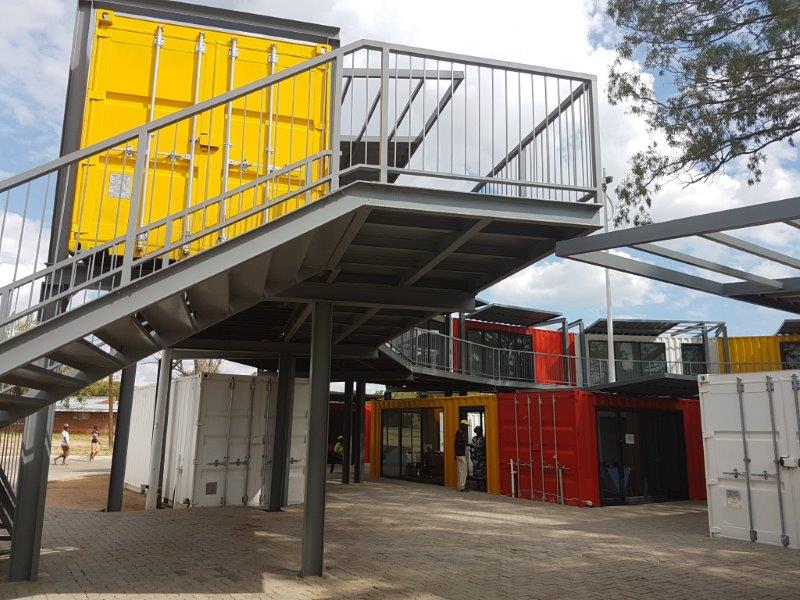Your basket is currently empty!
Reality Check: What Government Support Looks Like for Witzenberg Businesses
I live in a small town, and many would see this as an obstacle to growth and development. Truth is, it is only a barrier if you perceive it to be one.

If you see it as an obstacle, it will become one and you can choose any of a number of reasons.
- Distance from the big city.
- Limited client base.
- Lack of city infrastructure.
- Less mentors and training opportunities.
- The list continues
However, the opposite is also true.
- Less crime than in the bigger cities.
- Easier access to a client base who already know and trust you.
- Less red tape accessing infrastructure.
- The same if not better internet connectivity due to lower congestion.
- Easier access to the smaller group of mentors available.
I guess what I’m trying to say is that everything is based on your mindset and how you approach the obstacles you encounter. With the onset and growth of online opportunities your geographical location is really not a limitation anymore.
Never in history has it been easier to do business with potential clients based anywhere in the world. Sadly, for many small businesses in our town they still rely on local clientele and foot traffic makes up a large number of their sales. In our small town and I am sure many other small towns around the country, we have way too many young people who believe that the government or in this case our local municipality is going to help them start and grow their small business.
The government and local municipalities probably have very noble goals in mind for their development programmes. I’m also convinced that they believe the programmes they create will benefit the emerging entrepreneurs and in so doing have a knock-on effect in the local economy.
The major drawback of these local economic development projects is very often the way they are managed by local municipalities. The people delegated to oversee these projects are usually not businesspeople. The people making the rules and writing the requirements that apply to small businesses are municipal officials, many of whom have never run a small business or any business for that matter. The only business knowledge they bring to the table is that which they have acquired from books and from business courses run by other government departments.
This lack of business knowledge in our local municipality has now been made very clear in the establishment of a small business hub in the middle of nowhere. Our municipality with great fanfare launched a small business hub in an area with no foot traffic. What makes the situation even worse is that the business hub is not even on a road with vehicle traffic, where a passer by could possibly see these businesses while driving by.
The municipality advertised these business premises as an opportunity for the local entrepreneurs. Offered as rent free for the first six months, thereafter at a discounted rental to qualifying businesses. How on earth are they expecting businesses to make money when they are outside of the main towns away from possible exposure. The area is not even on a public transport route.
Besides removing them from potential clientele, the municipality has also put these fledgling businesses at the mercy of criminals. One of the businesses in the hub is a copy/print shop; to run this shop the owner needs computers and printers, along with other expensive equipment. The owner probably isn’t sleeping very well that because of the isolated location of his store, he is at a very real risk of becoming a crime stat.
Insurance is a huge and often overlooked expense in many start-ups, many believing they will get it in place when revenue picks up. Insurance of expensive electronics when the business is in an unsafe area is not cheap. High excess payments would make a serious dent in a small business’ cashflow, that is assuming they could afford insurance in the first place. Any theft or malicious damage to equipment could result in the closure of a small business. Even if such an event did not lead to a business closure it would seriously hamper any growth or expansion plans for the foreseeable future.
Of course, there is the other matter of increased costs to operate a small business from our municipal business hub, increased overheads. For a small business relying on foot traffic and easy visibility, marketing now becomes another expense. The adage goes out of sight out of mind. These businesses now rely on Social Media to be seen as many of them cannot afford their own websites yet and employing a marketing person or agency would not be financially feasible.
So, the questions arise, is the municipality helping or hindering these young businesses? Would these entrepreneurs not be better off simply working from their homes? Would the municipality by removing the red tape surrounding operating a business from home not be more helpful? Is this yet another example of government interfering in places they have no knowledge of? Why has our municipality not employed a retired businessperson to mentor small businesses and provide input on these small business initiatives.
What can be done to assist and improve the fate of these affected entrepreneurs? My first train of thought is for the municipality to make better properties available to these small businesses. By better properties I refer not only to the condition and security of the premises but also to the location the actual building. Make space available where small businesses can actually benefit from the local foot traffic.
As one of the bigger municipalities in the local area we can take lessons from a number of smaller more isolated towns, many of whom are further from big cities than we are.
Colesberg in the Northern Cape is a good example of how municipalities can really assist small businesses. The municipality provided a small business hub in the centre of town, right in the heart of the foot traffic. One of the businesses in the hub is a takeaway food store, her main market is passing truck drivers. The key to her success is having safe parking for trucks while their drivers walk to purchase their meals.
Besides placing the hub in a good location, the municipality of Colesberg did one other thing that was an even bigger contributor to the success of their small businesses. They provided safe parking for truck close to the business hub. In a town where more than 4000 trucks per day pass by on the N1 providing parking allowed the local small businesses to tap into a growing number of potential clients. Well done, Colesberg.
The second small town who have gotten their small business support right is Parys in the Free State. Parys is situated on the R59 approximately 180Kms from Johannesburg. Despite various service delivery failures, the town has been able to setup a near perfect small business hub.

The municipality built a shipping container shopping centre giving small businesses access to a safe and affordable business premises. The business hub is located right in the centre of town with plenty of parking available close by. Besides the fantastic location the municipality also provided lots of signage to assist with guiding visitors to the town in finding the business hub.
Read more about the Parys Container Mall.
Our town has plenty of open space in the CBD that would be perfect for small businesses, and it would give them the best opportunity to succeed.
I think the question we all need to ask more frequently.
Is the government and our local municipalities really trying to help entrepreneurs succeed?


Leave a Reply